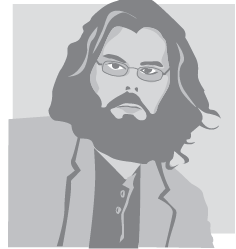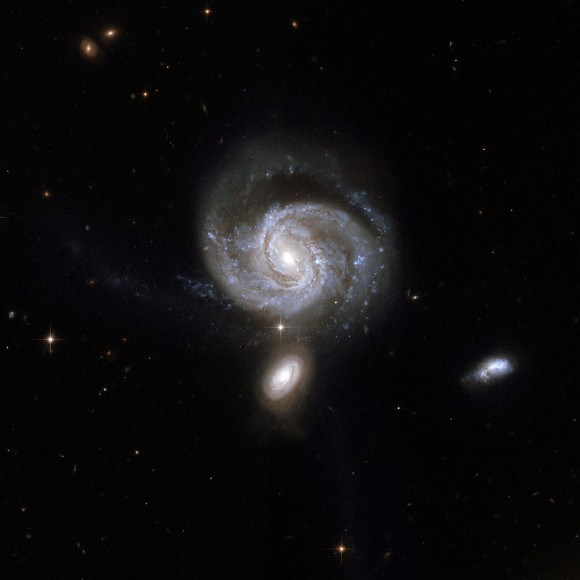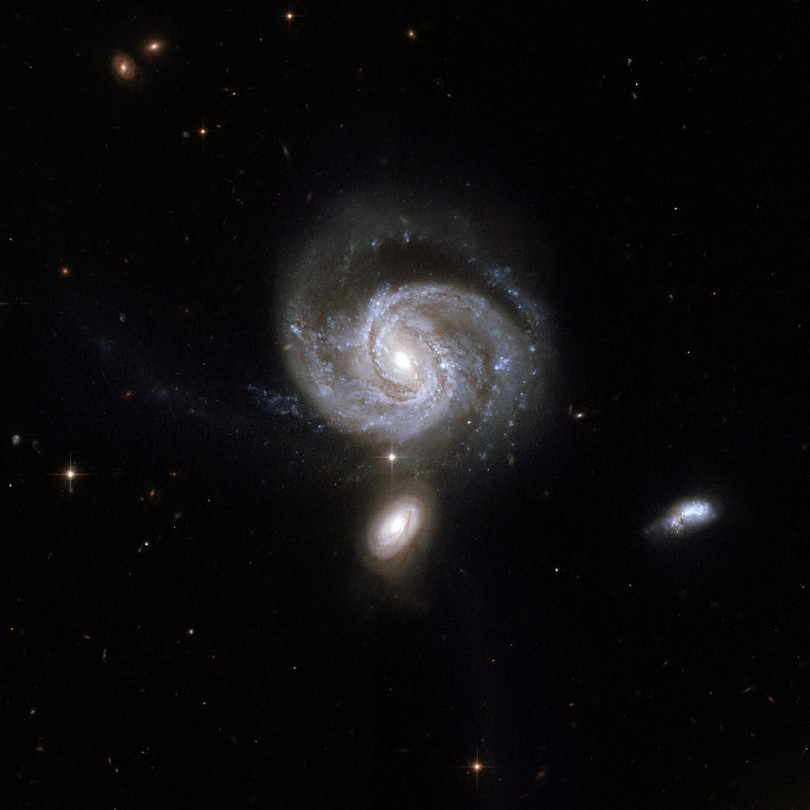 aNewDomain — Ambiguity is scary.
aNewDomain — Ambiguity is scary.
In the college classes I teach, I try not to introduce any ambiguity at all. The assignments are all explained in detail on the syllabus, and we don’t change them. The due dates are listed and they don’t move. We know what material is going to be covered on what day. And if you meet the requirements, you can be sure you will get the associated grade.
No surprises. You don’t get graded down for not sharing my politics or interpreting the data my way or not liking my columns here at aNewDomain.
I am, to the best extent possible, the same guy every day. Everyone gets treated the same, and I try not to learn your name specifically to make unconscious bias more difficult when I read papers.
Ambiguity is scary and fear reduces performance at complex tasks – like final exams. The high price of ambiguity is something you don’t want to pay, ever.
On the other hand, fear of ambiguity is a killer.
Nationalism and racism seem to be part of us, of humans. I’ve gone into all that before so no need to get long-winded about it here. But thousands of experiments have confirmed that exposure to death salience makes us more nationalistic and more bigoted: more inclined to favorably respond to people like us, and more inclined to respond unfavorably to people unlike us.

In other words, our natural response to the certainty of death, the ambiguity of life, is to cling to our in-groups and hate on out-groups.
There are lots of other defenses against ambiguity. Hand-washing, for example.
You can, to a degree, control how many germs are on your skin; this gives you a sense of control in a life in which you otherwise lack it. Counting does the same. I used to count by fives: books on bookshelves, steps on staircases, whatever else. Over and over and over.
Some people can become extremely controlling.
Freud would have some theory about withholding feces from the parent in the anal stage of development. That’s called anal retention. But the existentialist suggests such control stems from a fear of death — aka a fear of ambiguity.
All these things are defenses, and we need defenses. The undefended person is like a body with no immune system: It can’t survive long in a hostile world. Our job as therapists and as people is to work on defenses that are effective, necessary and harmless to others.
Early on in a course of treatment or enlightenment or self-work, the defenses might be necessary. The question is, Can you step down the hand-washing to hand-rubbing?
Eventually to a different ritual entirely?
Might counting by fives fill that need for control?
If it’s already counting, might checking your shoes are tied once per hour do the trick?
Later, though, we might work on inoculation. Exposure to harmless ambiguity, such as the vastness and minuteness of the universe, can help us handle the more troublesome ambiguities we will meet later.

Reading poetry or books or watching movies with uncertain endings, meditation or contemplative prayer are all encounters with ambiguity.
There’s even this groovy scale chart to help you eventually tolerate the groundlessness of being.
Eventually, that is also how you get comfortable with the idea of dying. The fear of dying won’t cause such a panic after some work.
We existential psychologists often find that people generally are afraid to die when their lives seem incomplete or chaotic.
That is, you feel out of control, like your choices don’t matter, like your vote doesn’t count; like bad things keep happening no matter what you do. Life is a series of misfortunes that can’t be overcome, not in a serial way you can quantify and understand.
We humans, it turns out, generally don’t fear dying when we don’t worry that we are going to leave behind unfinished business. When our relationships have reached conditions or harmony, when we’ve done away with the bad ones in a way we can feel good about, we lose the fear of dying.
We’ve lived enough, it will finally dawn on us. We hit some of the things on our bucket lists. When we feel our lives are meaningful (either because we’re engaged in living or working and loving, like Freud suggested), we don’t tend to fear dying. When we can tell the narrative of our lives in a way we think might last and not be lost, immediately anyway, we lose the fear of dying, too.
We know this to be true.
Those of us who don’t fear dying don’t wrestle with gods who capriciously micturate on us from a great height. We grapple with, instead, a series of events that follow rationally one from the other.
And when there are problems, we can see the narrative of our own growth, acceptance, or even victory.
We can’t all get there tomorrow. Comfort with ambiguity is a difficult standard to attain and even the enlightened backslide. Fall down.
And beyond that point are more points — such as comfort with despair. But for now, we can at least become a little self-aware, try to make sure our defenses aren’t offenses towards others.
For some web site, I’m a writer.
Nazi image on cover and inside: Aufmarsch der nationalen Opposition unter Führung von Hugenberg und Hitler in Bad Harzburg!
Der Führer der Deutschnationalen Geheimrat Hugenberg (x) nimmt in Bad Harzburg den Vorbeimarsch der Nationalsozialisten ab.
Galaxy image: “Hubble Interacting Galaxy NGC 7674 (2008-04-24)” by NASA, ESA, the Hubble Heritage (STScI/AURA)-ESA/Hubble Collaboration, and A. Evans (University of Virginia, Charlottesville/NRAO/Stony Brook University) – http://hubblesite.org/newscenter/archive/releases/2008/16/image/ca/ (direct link). Licensed under Public Domain via Wikimedia Commons – http://commons.wikimedia.org/wiki/File:Hubble_Interacting_Galaxy_NGC_7674_(2008-04-24).jpg#/media/File:Hubble_Interacting_Galaxy_NGC_7674_(2008-04-24).jpg













